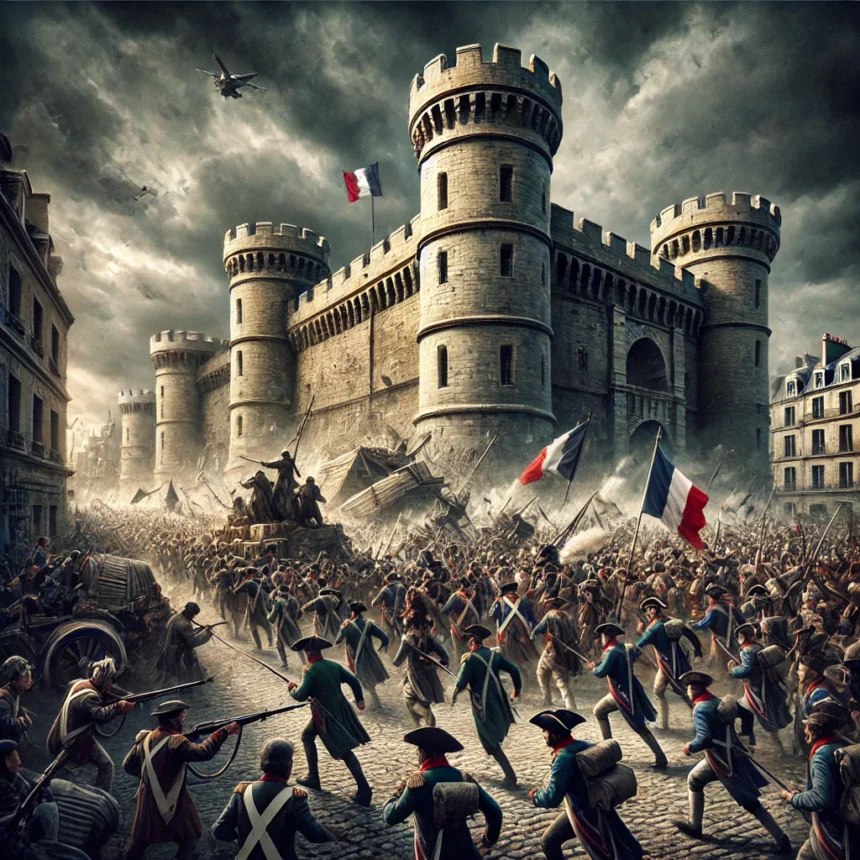French Revolution: A Day That Echoed Through History
Introduction:
As a part of out weekly schedule for Tuesdays, the day when we discuss Indian and international historical issues we will discuss a momentous event in history in the world. July 14, 1789, marks a pivotal moment in world history—the day of the French Revolution when the Bastille was stormed, symbolizing the seismic shift from absolute monarchy to the revolutionary spirit that would redefine France and ripple across continents. This date, now celebrated as Bastille Day in France, symbolizes the triumph of the people over oppression and the dawn of modern democracy. In this blog, we delve into the events of that day, the historical context that led to the uprising, and the profound impact of the Fall of the Bastille on both French and global history during the French Revolution.
Analyzing Climate of Late 18th Century France and Western Europe
Socio-Economic Conditions
The Role of Religion
Religion played a complex role in the events leading up to the French Revolution. The Catholic Church was a powerful institution in France, closely allied with the monarchy and the nobility. It owned a considerable portion of the land and was exempt from taxes, which contributed to the widespread resentment among the peasantry and the burgeoning middle class. The Church’s immense wealth and power were seen as symbols of the corruption and inequality that characterized the Ancien Régime.
However, Enlightenment thinking had also begun to secularize society’s views on religion and governance. Critics argued that the Church’s immense power and wealth should be curtailed, advocating for a separation of church and state. This sentiment was reflected in the revolutionary policies that followed, including the confiscation of Church property and the Civil Constitution of the Clergy, which sought to bring the Church under state control.
The Broader European Context
The rest of Western Europe watched France with a mix of fear and admiration. While Enlightenment ideas were percolating through societies across the continent, sparking debates and intellectual salons, the absolute monarchies and entrenched aristocracies of neighboring countries viewed the growing unrest in France as a warning. The French Revolution would eventually send shockwaves throughout Europe, leading to reforms in some regions and reactionary conservatism in others, as rulers worked to stave off similar uprisings in their domains.
The Spark Leading to French Revolution
The Bastille, a formidable medieval fortress turned state prison, had come to represent the oppressive and arbitrary authority wielded by Louis XVI’s Ancien Régime by the 18th century. As the summer of 1789 unfolded, France found itself gripped by a severe economic crisis, fueled by unjust tax structures and the extravagant expenditures of the monarchy. The resulting widespread hunger and poverty ignited a firestorm among the Parisian populace, who were increasingly vocal in their demands for more democratic governance and equitable financial reforms.
Aftermath and Its Impact
The storming of the Bastille unleashed a chain reaction that rippled through French society and beyond, igniting a period of profound social and political transformation. In the immediate wake of the siege, France was plunged into a state of turmoil, as power structures that had existed for centuries began to unravel rapidly. This upheaval marked the official onset of the French Revolution—a far-reaching movement that would fundamentally reshape the nation’s political landscape.
As the news of the Bastille’s fall spread, it galvanized communities across France, becoming a symbol of hope and possibility. It demonstrated the tangible impact of collective action, encouraging further uprisings and solidifying public support for revolutionary change. Internationally, the resonance of the event was equally profound, inspiring a wave of revolutionary fervor across Europe and the Americas. Movements in these regions drew directly from the principles of liberty, equality, and fraternity that had been vividly embodied by the French populace.
Legacy and Reflection
Today, the legacy of the Bastille’s fall is immortalized every year on July 14th, known universally as Bastille Day. This national holiday is marked by grand military parades, elaborate fireworks, and public revelry, celebrating not just the fall of a fortress but the birth of modern France. It is a day that reflects on the power of ordinary citizens to effect monumental change and underscores the lasting principles of the French Revolution.
Bastille Day serves as a poignant reminder of the enduring aspirations for liberty and justice—a call that continues to resonate in contemporary movements for democracy and human rights worldwide. The commemorations each year reinvigorate the resolve to pursue equality and remind us of the transformative power of united civic action.
Reflections on French Revolution and Aftermath
The storming of the Bastille and French Revolution transcends its historical moment, standing as a testament to the indomitable human spirit’s quest for freedom and equality. As we commemorate this pivotal event, we are reminded of the profound impacts that passionate, collective activism can have on shaping the trajectories of societies. The legacy of that day continues to inspire individuals and communities around the globe to challenge injustice and advocate for democratic governance. In reflecting on the events of July 14, 1789, we are continually inspired by the courage of those who dared to envision a different world and by the enduring relevance of their ideals in our ongoing quest for a more just and equitable society.
Feature Image: Click here to view the image.
#BastilleDay #FrenchRevolution #History #Democracy #RevolutionaryHistory



Leave a Reply